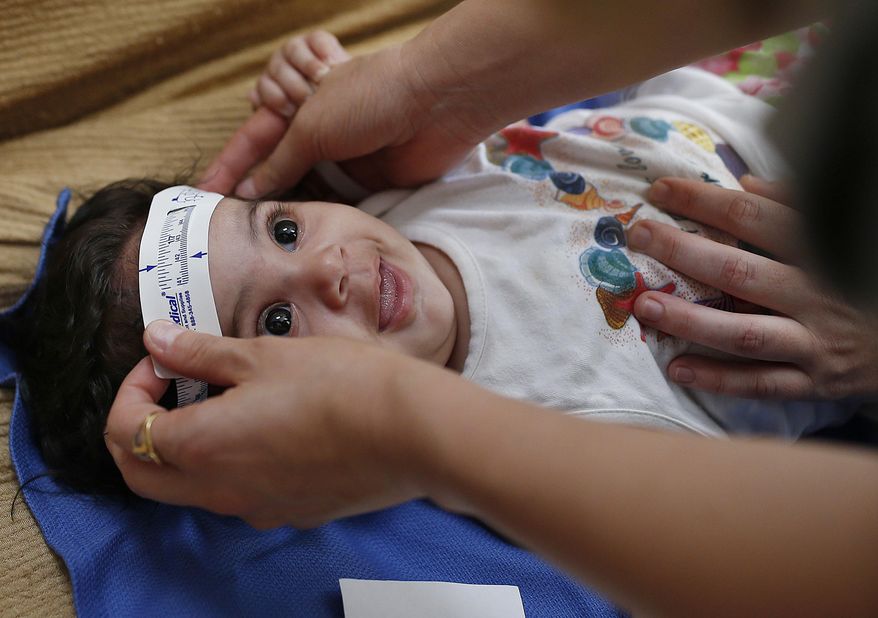
In this Wednesday, Feb. 24, 2016, file photo, 3-month-old Esther Kamilly has her head measured by Brazilian and U.S. health workers from the United States' Centers for Disease Control and Prevention (CDC) at her home in Joao Pessoa, Brazil, as part of a study on the Zika virus and the birth defect microcephaly. As the international epidemic of Zika has unfolded and led to devastating birth defects for at least 1,300 children in eight countries, an agonizing question has persisted: What is the chance that an infected pregnant woman will have a baby with these defects? (AP Photo/Andre Penner)
Featured Photo Galleries














